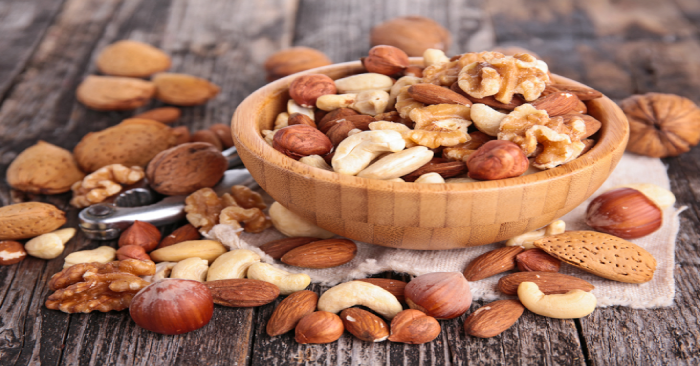Navigating Menopause: Essential Foods for Women’s Health

Menopause marks a significant transition in a woman’s life, accompanied by hormonal changes and various symptoms. Adopting a nutritious diet can be instrumental in managing these changes and promoting overall well-being during this phase. Here’s a guide to essential foods that can support women’s health during menopause:
Whole Grains: Incorporate quinoa, brown rice, and oats into your diet for their fiber content, which aids in digestion and weight management. These grains also provide B vitamins and magnesium to support energy levels and mood stability.
Fruits and Vegetables: Colorful fruits and veggies are rich in vitamins, minerals, and antioxidants that support bone health, reduce inflammation, and boost the immune system. Focus on leafy greens, berries, and citrus fruits for optimal benefits.
Fatty Fish: Omega-3 fatty acids found in fish like salmon and mackerel have anti-inflammatory properties, which can help alleviate joint pain and reduce the risk of heart disease. Including fish in your diet supports brain health and mood regulation.
Dairy or Dairy Alternatives: Ensure adequate calcium and vitamin D intake to support bone health. Dairy products like milk, cheese, and yogurt are excellent sources of these nutrients, reducing the risk of osteoporosis.
Flaxseeds: Rich in lignans, flaxseeds offer estrogen-like properties that may help manage hormonal fluctuations and alleviate symptoms like hot flashes. Add ground flaxseeds to yogurt or smoothies for easy consumption.
Nuts and Seeds: Snack on nuts and seeds for healthy fats, protein, and essential minerals like magnesium and vitamin E. These nutrients contribute to mood regulation and skin health during menopause.
Soy Products: Incorporate tofu and edamame into your diet for their phytoestrogen content, which mimics the effects of estrogen in the body. Soy products can help balance hormonal fluctuations and reduce symptoms like hot flashes.
Water: Stay hydrated to manage symptoms like bloating and hot flashes. Water supports digestion and nutrient absorption, promoting overall health during menopause.
Lean Protein: Maintain muscle mass and bone health with lean protein sources such as poultry, beans, and lentils. Protein also aids in weight management and energy levels during menopause.
Herbs and Spices: Consider incorporating herbs like Shatavari and Ashwagandha, known for their benefits in controlling menopausal symptoms and improving sleep quality in Ayurveda.
While these foods offer essential nutrients and symptom relief, it’s essential to consult a healthcare professional for personalized guidance based on individual needs and health conditions. Alongside nutrition, prioritize physical activity, stress management, and adequate sleep for a holistic approach to navigating menopause.






